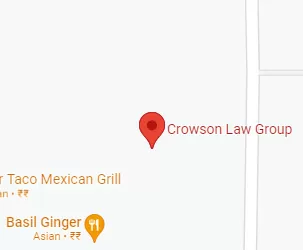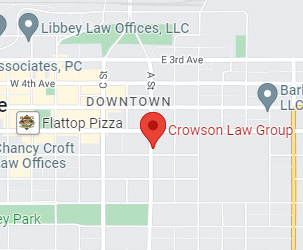Personal Property Damage in an Auto Accident

Car accidents are a common occurrence on Wasilla roads. They can happen to anyone at any time. Accidents could be minor fender-benders or major collisions. But regardless of the severity, they can cause damage to your vehicle and personal property.
What Qualifies as Property Damage?
Property damage is any physical harm caused to tangible property, such as a vehicle or personal belongings. Personal property may include items such as a laptop or phone. Property damage does not include damage to real property, such as buildings or land. These types of damages would fall under a different category, such as real property damage.
In the event of property damage in an auto accident, document the damage and file an insurance claim as soon as possible. This will help ensure you receive the compensation you are entitled to for the damages incurred.
Car Accident Statutes of Limitations in Wasilla
In Wasilla, Alaska, there is a statute of limitations for filing a lawsuit related to a car accident. According to Alaska Statutes Section 09.10.070, you have two years from the accident date to file a lawsuit for personal injury or property damage.
If you file a lawsuit within two years, you may retain your right to do so. This is why acting quickly is crucial if you have suffered personal injury or property damage in a car accident.
If you need clarification on the statute of limitations or need help filing a lawsuit, it’s important to contact a personal injury lawyer as soon as possible. They can help guide you through the legal process and protect your rights.
Do I Need a Lawyer for a Property Damage Claim?
While you can file a property damage claim on your own, there are situations where it may be beneficial to hire an attorney. Here are a few reasons you may want to consider consulting with a lawyer:
- You need help getting compensation: If you are having trouble getting compensation for your property damage, an attorney negotiates with the insurance company and ensure you receive a fair settlement.
- The insurance company is disputing liability: If the insurance company is disputing liability for the accident, an attorney could gather evidence and build a case to prove fault.
- You suffered injuries in the accident: If you suffered injuries, you might want to consider hiring a personal injury attorney who can handle both your property damage and personal injury claims.
- You are unsure about your legal rights: If you need clarification on your legal rights or how to proceed with your claim, consulting with an attorney can help provide clarity and guidance.
When Would You Sue Someone for Property Damage?
While filing an insurance claim is the most common way to seek compensation for property damage, there are situations where you may consider filing a lawsuit against the at-fault driver. Here are a few scenarios where a lawsuit may be appropriate:
- The at-fault driver does not have insurance: If the driver does not have insurance or is underinsured, you may need to file a lawsuit to recover damages.
- The insurance company is not offering a fair settlement: If the insurance company is not offering a fair settlement for your property damage, consider filing a lawsuit to ensure you receive the compensation you deserve.
- You suffered significant property damage: If you suffered significant damage due to the accident, it might be worth filing a lawsuit to recover the full extent of your damages.
- The at-fault driver is disputing liability: If the driver is disputing liability for the accident and you believe they are responsible for your property damage, consider filing a lawsuit to prove fault.
Knowing your rights and options for seeking compensation is important if you’re involved in an auto accident and suffer property damage. While you may not always need a lawyer for a property damage claim, there are situations where it may be beneficial to consult with an attorney, such as if the insurance company is not offering a fair settlement or if you’re considering filing a lawsuit.


